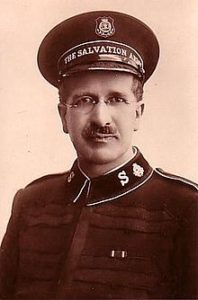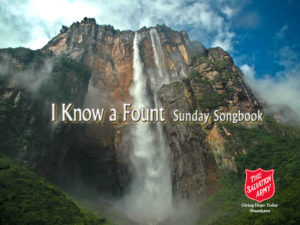How wonderful it is to walk with God
Along the road that holy men have trod;
How wonderful it is to hear Him say:
“Fear not, have faith, ’tis I who lead the way!”
How wonderful it is to talk with God
When cares sweep o’er my spirit like a flood;
How wonderful it is to hear His voice,
For when He speaks the desert lands rejoice!
How wonderful it is to praise my God,
Who comforts and protects me with His rod;
How wonderful to praise Him every hour,
My heart attuned to sing His wondrous power!
How wonderful it is to fight for God,
And point poor sinners to the precious blood;
How wonderful it is to wield His sword
‘Gainst sin, the enemy of Christ, my Lord!
How wonderful ’twill be to live with God
When I have crossed death’s deep and swelling flood;
How wonderful to see Him face to face
When I have fought the fight and won the race!
Summer – time for walks on beaches, forest trails and friendly small-town streets. Walking with God, of course, is a year-round possibility, wherever we may be.
 The author of this song, Theodore Kitching, was born in Yorkshire, England, in 1866. He was converted to Christ in a Salvation Army meeting in the holiday town of Bristol at the age of sixteen, and six years later became a Salvation Army officer. His appointments involved secretarial skills as he served in Britain, France, Switzerland and Belgium. In 1906 he compiled the first Salvation Army Yearbook, a tradition that has continued through the years.
The author of this song, Theodore Kitching, was born in Yorkshire, England, in 1866. He was converted to Christ in a Salvation Army meeting in the holiday town of Bristol at the age of sixteen, and six years later became a Salvation Army officer. His appointments involved secretarial skills as he served in Britain, France, Switzerland and Belgium. In 1906 he compiled the first Salvation Army Yearbook, a tradition that has continued through the years.
Kitching was Secretary to first General William and then General Bramwell Booth, as well as becoming the International Secretary for Europe. From 1921 to 1929 he was Editor-in-Chief of Salvation Army publications, and then head of the Literary Department and Translations Bureau. In February 1930, while travelling to Geneva as Ambassador for General Edward Higgins, Theodore Kitching died suddenly in a Paris station restaurant. Promoted to Glory!
WORDS: THEODORE KITCHING; MUSIC – TUNE, ELLERS: EDWARD HOPKINS
S.A. SONG BOOK, 1987 EDITION, #583; 2015 EDITION, #838
REFERENCE: USAWEST.ORG
International Staff Songsters of The Salvation Army






